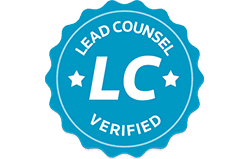Juvenile Offenses
Northwest Indiana Juvenile Offense Attorney
Few situations are as intense as when you’ve been informed your child has been taken into police custody. Fear, confusion and a flood of questions about what’s next are natural reactions. A mistake made as a minor can have lasting consequences, which is why understanding the juvenile justice system and securing a knowledgeable defense attorney is the most important step you can take.
If your child is facing a criminal accusation, you need a lawyer who will fight to protect their rights. The Law Offices of Shane O’Donnell serves as your partner in seeking a brighter future after juvenile charges.
Juvenile Offenses in Indiana
In Indiana, the legal framework for juvenile offenses is outlined in Indiana Code Title 31, Article 37. Unlike the adult criminal justice system, this framework prioritizes rehabilitation over punitive measures.
A child under 18 who commits an act that would be a crime if they were an adult is considered to have committed a “delinquent act.” This legally defines them as a “delinquent child.”
Types of Delinquent Acts
Juvenile offenses encompass a spectrum of behaviors, varying from petty infractions to grave criminal acts. These are grouped into two main categories:
- Acts that would be crimes if committed by an adult: These include offenses like theft, battery, drug possession, vandalism and DUI.
- Status offenses: These are actions that are only illegal because of the individual’s age. Common examples include truancy (skipping school), violating curfew, running away from home and underage drinking.
While the juvenile system aims for rehabilitation, the consequences can still be significant. It is a mistake to assume the process is not serious. An experienced attorney ensures your child’s case is handled with the gravity it deserves.
The Juvenile Justice Process
Navigating the juvenile justice process can be confusing for parents. Here is a simplified overview of what to expect:
- Custody: A law enforcement officer can take a child into custody with a court order or if they have probable cause to believe a delinquent act was committed.
- Detention Hearing: If the child is not released to a parent or guardian, a detention hearing must be held within 48 hours (excluding weekends and holidays). At this hearing, a judge will decide whether the child can be released or must remain in a juvenile detention facility while the case proceeds.
- Petition for Delinquency: Instead of filing criminal charges, the prosecutor files a “petition alleging delinquency.” This document formally outlines the alleged offense.
This process moves quickly, and critical decisions are made at each stage. Having an attorney present from the very beginning is vital to protect your child’s rights.
Your Child’s Rights and Legal Representation
Juveniles have many of the same constitutional rights as adult defendants. These include the right to an attorney, the right to remain silent, and the right to confront witnesses.
The role of a juvenile crimes defense attorney is to:
- Ensure your child’s rights are not violated.
- Explain the process and potential outcomes to you and your child.
- Investigate the allegations and build a strong defense.
- Negotiate with the prosecutor for alternatives to formal proceedings, such as diversion programs.
- Advocate for your child’s best interests in court, aiming for a resolution that minimizes long-term impact.
An attorney acts as your child’s voice, ensuring their side of the story is heard and that their future remains the top priority.
Potential Outcomes for Juvenile Offenses
Judges in the juvenile system have a wide range of options for resolving a case. The goal is always to find the least restrictive option that serves the child’s best interests and community safety. Potential outcomes include:
- Probation: One of the most common outcomes, where a child is supervised by a probation officer.
- Counseling or Treatment: Requirements to attend substance abuse or mental health programs.
- Community Service: Fulfilling a designated number of hours in unpaid work.
- Restitution: Paying for damages caused by their actions.
- Detention: Placement in a juvenile correction facility for more serious offenses.
A skilled attorney can advocate for rehabilitative outcomes that allow your child to learn from their mistake and move forward successfully.
Protect Your Child’s Future With Our Attorneys
Facing a juvenile offense allegation is a serious matter, but you do not have to go through it alone. The most important step you can take is to secure experienced legal representation immediately. An attorney can help you through the complexities of the system and work tirelessly to protect your child’s rights and future opportunities.
At the Law Offices of Shane O’Donnell, we understand the fear and uncertainty you are feeling. We provide compassionate, unwavering legal support to families across Northwest Indiana. If your child has been accused of a crime, contact us today for assistance.
Whether you were injured in an accident or accused of a crime, we work tirelessly to help your case and are committed to protecting your future.
WHAT OUR CLIENTS SAY!
Get A Free Consultation
We can help you get through your legal crisis. Contact the Law Offices of Shane O’Donnell today.













